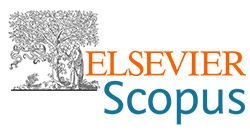Application of machine learning in corrosion inhibition study
DOI:
https://doi.org/10.5937/zasmat2203280RAbstract
Artificial intelligence is a branch of science concerned with teaching machines to think and act like humans. Machine learning is concerned with enabling computers to perform tasks without the need for explicit programming. Machine Learning enables computers to learn without the need for explicit programming. Machine Learning is a broad field that encompasses a wide range of machine learning operations such as clustering, classification, and the development of predictive models. Machine Learning (ML) and Deep Learning (DL) research is now finding a home in both industry and academia. Machine Learning technologies are increasingly being used in medical imaging. To detect tumours and other malignant growths in the human body. Deep Learning is making significant contributions to the advancement of industrial robotics. Machine learning algorithms are used in the self-driving car industry to guide the vehicle to its destination. Deep Learning and Machine Learning are also used in corrosion science and engineering. They are used to choose the inhibitor molecules from a large pool of available molecules.Keywords:
Artificial Intelligence, Machine learning, Deep learning, Neural Networks, Algorithms, The Input Layer, The Hidden Layer and The Output LayerReferences
Agarwal, A., Rathore, P., Jain, V., Rai, B. (2019) In-silico model for predicting the corrosion inhibition efficiency of steel inhibitors.NACE -International Corrosion Conference Series, March,13329
Atasoy, V.E., Suzer, A.E., Ekici, S. (2022) Comparative analysis of exhaust gas temperature based on Machine learning models for aviation applications.Journal of Energy Resources Technology, Transactions of the ASME, 144(8), 082101
https://doi.org/10.1115/1.4052771
Bertolucci, C.L., Zhang, D., van Ingelgem, Y., Steckelmacher, D., Nowé, A., Terryn, H. (2022) Reviewing machine learning of corrosion predictionin a data-oriented perspective. 6(8), 1-16
https://doi.org/10.1038/s41529-022-00218-4
Boukhari, Y., Boucherit, M.N., Zaabat, M., Amzert, S., Brahimi, K. (2018) Optimization of learning algorithms in the prediction of pitting corrosion.Journal of Engineering Science and Technology, 13(5), 1153-1164
Che, Y., Deng, Z., Tang, X., Lin, X., Nie, X., Hu, X. (2022) Lifetime and aging degradation prognostics for Lithium-ion battery packs based on a cell to pack method.Chinese Journal of Mechanical Engineering, 35(4), 1-16
https://doi.org/10.1186/s10033-021-00668-y
Deng, C., Wang, Y., Qin, C., Fu, Y., Lu, W. (2022) Gaussian mixture model deep neural network and its application in porosity prediction of deep carbonate reservoir.Geophysics, 87(2), 59-72
https://doi.org/10.1190/geo2020-0740.1
Deng, C., Wang, Y., Qin, C., Fu, Y., Lu, W. (2022) Selfdirected online machine learning for topology optimization.Nature Communications, 13(1): 338-338
https://doi.org/10.1038/s41467-021-27713-7
Feiler, C., Mei, D., Vaghefinazari, B., Würger, T., Meißner, R.H., Luthringer-Feyerabend, B.J.C., Winkler, D.A., Zheludkevich, M.L., Lamaka, S.V. (2020) In silico screening of modulators of magnesium dissolution.Corrosion Science, 163, 108245
https://doi.org/10.1016/j.corsci.2019.108245
He, B., Ye, L., Pei, M., Lu, P., Dai, B., Li, Z., Wang, K. (2022) A combined model for short-term wind power forecasting based on the analysis of numerical weather prediction data.Energy Reports, 8, 929-939
https://doi.org/10.1016/j.egyr.2021.10.102
Jain, D., Dwadasi, B.S., Kumar, D., Mishra, S., Ravikumar, B., Gupta, R., Srinivasan, S.G., Jain, V., Mynam, M., Maiti, S., Rai, B. (2019) Materials design in digital era: Challenges and opportunities.Transactions of the Indian Institute of Metals, 72(8), 2199-2208
https://doi.org/10.1007/s12666-019-01702-3
Kakati, T., Bhattacharyya, D.K., Kalita, J.K., Norden-Krichmar, T.M. (2022) DEGnext: Classification of differentially expressed genes from RNA-seq data using a convolutional neural network with transfer learning.BMC Bioinformatics, 23(17): 1-18
https://doi.org/10.1186/s12859-021-04527-4
Liao, J., Liu, Y., Piao, Y., Su, J., Cai, G., Wu, Y. (2022) GLE-net: A global and local ensemble network for aerial object detection.International Journal of Computional Intelligence Systems, 15(2), 1-12
https://doi.org/10.1007/s44196-021-00056-3
Liu, Y., Guo, Y., Wu, W., Xiong, Y., Sun, C., Yuan, L., Li, M. (2019) A machine learning-based QSAR model for benzimidazole derivatives as corrosion inhibitors by incorporating comprehensive feature selection.Interdiscip Sci, 11(4), 738-747
https://doi.org/10.1007/s12539-019-00346-7
Mena, J., Pujol, O., Vitrià, J. (2022) A survey on uncertainty estimation in Deep learning classification systems from a Bayesian perspective.ACM Computing Surveys, 54(9), 1-35
https://doi.org/10.1145/3477140
Newton, M.A.H., Mataeimoghadam, F., Zaman, R., Sattar, A. (2022) Secondary structure specific simpler prediction models for protein backbone angles.BMC Bioinformatics, 23(6), 1-14
https://doi.org/10.1186/s12859-021-04525-6
Oloulade, B.M., Gao, J., Chen, J., Lyu, T., Al-Sabri, R. (2022) Graph Neural architecture search: A survey.Tsinghua Science and Technology, 27(4), 692-708
https://doi.org/10.26599/TST.2021.9010057
Qiu, F., Zhang, G., Sheng, X., Jiang, L., Zhu, L., Xiang, Q., Jiang, B., Chen, P.K. (2022) Predicting students' performance in e-learning using learning process and behaviour data.Scientific Reports, 12(453): 1-15
https://doi.org/10.1038/s41598-021-03867-8
Quadri, T.W., Olasunkanmi, L.O., Fayemi, O.E., Akpan, E.D., Verma, C., Sherif, E.M., Khaled, K.F., Ebenso, E.E. (2021) Quantitative structure activity relationship and artificial neural network as vital tools in predicting coordination capabilities of organic compounds with metal surface: A review.Coordination Chemistry Reviews, 446, 214101
https://doi.org/10.1016/j.ccr.2021.214101
Ranjan, A., Shukla, S., Datta, D., Misra, R. (2022) Generating novel molecule for target protein (SARS-CoV-2) using drug-target interaction based on graph neural network.Network Modeling Analysis in Health Informatics and Bioinformatics, 11(6), 1-11
https://doi.org/10.1007/s13721-021-00351-1
Schiessler, E.J., Würger, T., Lamaka, S.V., Meißner, R.H., Cyron, C.J., Zheludkevich, M.L., Feiler, C., Aydin, R.C. (2021) Predicting the inhibition efficiencies of magnesium dissolution modulators using sparse machine learning models.Npj Computational Materials, 7(1), 193-199
https://doi.org/10.1038/s41524-021-00658-7
Ser, C.T., Žuvela, P., Wong, M.W. (2020) Prediction of corrosion inhibition efficiency of pyridines and quinolines on an iron surface using machine learning-powered quantitative structure-property relationships.Applied Surface Science, 512, 145612
https://doi.org/10.1016/j.apsusc.2020.145612
Sun, X., Zhang, H., Wang, J., Shi, C., Hua, D., Li, J. (2022) Ensemble streamflow forecasting based on variational mode decomposition and long short term memory.Scientific Reports, 12(447), 1-12
https://doi.org/10.1038/s41598-021-03725-7
Thiagarajan, J.J., Thopalli, K., Rajan, D., Turaga, P. (2022) Training calibration-based counterfactual explainers for deep learning models in medical image analysis.Scientific Reports, 12(597): 1-15
https://doi.org/10.1038/s41598-021-04529-5
Varvara, S., Berghian-Grosan, C., Bostan, R., Lucacel, C.R., Salarvand, Z., Talebian, M., Raeissi, K., Izquierdo, J., Souto, R.M. (2021) Experimental characterization, machine learning analysis and computational modelling of the high effective inhibition of copper corrosion by 5-(4-pyridyl)-1,3,4-oxadiazole-2-thiol in saline environment.Electrochimica. Acta, 398, 139282
https://doi.org/10.1016/j.electacta.2021.139282
Vu, N.H., Mayer, J.R.R., Bitar-Nehme, E. (2022) Deep learning LSTM for predicting thermally induced geometric errors using rotary axes' powers as input parameters.CIRP Journal of Manufacturing Science and Technology, 37, 70-80
https://doi.org/10.1016/j.cirpj.2021.12.009
Winkler, D.A. (2017) Predicting the performance of organic corrosion inhibitors.Metals, 7(12), 553
https://doi.org/10.3390/met7120553
Würger, T., Feiler, C., Musil, F., Feldbauer, G.B.V., Höche, D., Lamaka, S.V., Zheludkevich, M.L., Meißner, R.H. (2019) Data science based Mg corrosion engineering.Frontiers in Materials, 6(53), 1-9
https://doi.org/10.3389/fmats.2019.00053
Zhang, J., Jiang, Y., Wu, S., Li, X., Luo, H., Yin, S. (2022) Prediction of remaining useful life based on bidirectional gated recurrent unit with temporal selfattention mechanism.Reliability Engineering and System Safety, 221, 108297
https://doi.org/10.1016/j.ress.2021.108297
Zhang, X., Zheng, X., Mao, W. (2022) Adversarial perturbation defense on Deep Neural Networks.ACM Computing Surveys, 54(8), 1-36
Downloads
Published
Issue
Section
License
Copyright (c) 2022 CC BY 4.0 by Authors

This work is licensed under a Creative Commons Attribution 4.0 International License.






